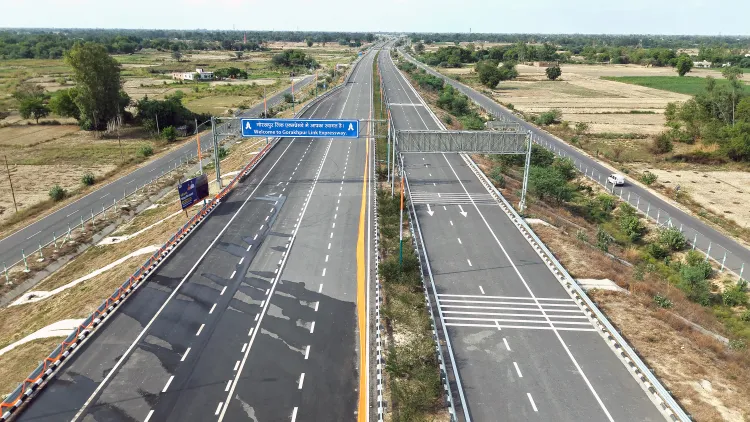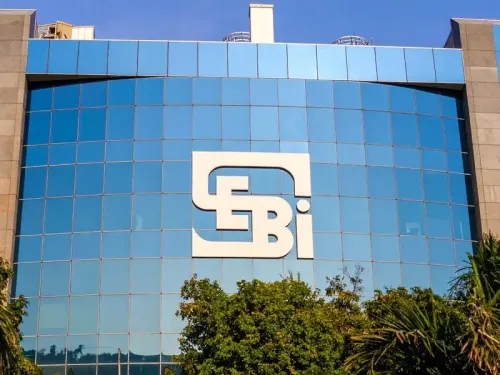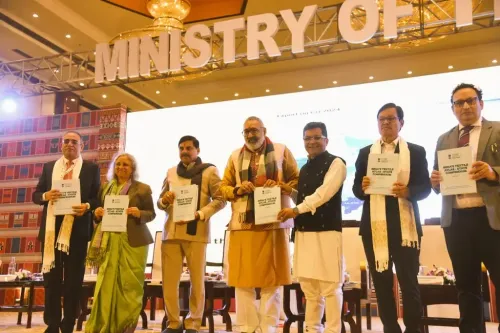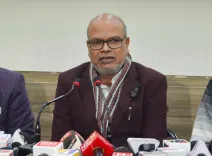Will 88% of Manufacturers Expand Operations Thanks to India's Infrastructure Initiative?

Synopsis
Key Takeaways
- 88% of manufacturers intend to expand operations.
- Government infrastructure projects are pivotal for growth.
- Improved logistics and transport access boosts confidence.
- Large enterprises see a sharper impact from these initiatives.
- Long-term strategies are essential for sustaining growth.
New Delhi, June 27 (NationPress) The government's infrastructure initiative has significantly impacted capital investment decisions for 88% of manufacturers, indicating a rise in confidence to expand operations, as reported on Friday.
India's manufacturing and logistics landscape is witnessing a profound transformation, fueled by robust policy support and extensive infrastructure investments.
A report by Cushman & Wakefield, titled 'Elevating India’s Manufacturing Resilience: Charting the Path to Self-Reliance,' shows heightened optimism regarding government-led infrastructure projects such as Bharatmala, Sagarmala, Dedicated Freight Corridors, and the National Industrial Corridor Development.
Approximately 86% of surveyed manufacturers affirmed that these projects have positively impacted their business operations, while 95% acknowledged enhanced access to logistics and transport infrastructure.
For larger enterprises, the influence is even more pronounced — 94% indicated that these improvements have been crucial in shaping their expansion strategies.
While the infrastructure expansion has set the stage for industrial growth, government policies like the Production-Linked Incentive (PLI) schemes and Make in India are guiding strategic priorities.
More than 40% of participants noted that these schemes have made a substantial impact on their operations.
The National Logistics Policy (NLP) and National Industrial Corridor Development (NICD) were highlighted by 54% of respondents as particularly advantageous, especially for MSMEs, where logistics accessibility and industrial park connectivity serve as vital enablers, the report stated.
Significantly, 77% of respondents felt that the ease of doing business has improved, a sentiment that increases to 86% among large firms.
“India's manufacturing sector is undergoing a structural transformation. Our findings demonstrate a strong correlation between infrastructure investment, policy clarity, and industry ambitions,” stated Gautam Saraf, Executive Managing Director, Mumbai and New Business at Cushman & Wakefield.
To maintain this momentum, India must tackle deep-seated cost and capacity disparities — particularly in logistics, integrated facilities, and MSME productivity.
“Plug-and-play industrial parks, multimodal logistics networks, and enhanced land aggregation frameworks are not merely facilitators; they are essential levers for translating policy momentum into production-ready outcomes,” Saraf added.
To support sustainable growth, the report proposes a five-pronged strategy: expedite the creation of plug-and-play industrial parks; reassess the criteria defining MSMEs to encourage scalability; accelerate the rollout of multimodal logistics parks (MMLPs); invest in targeted skill development initiatives; and empower MSME exports through unified digital platforms and incentives.










